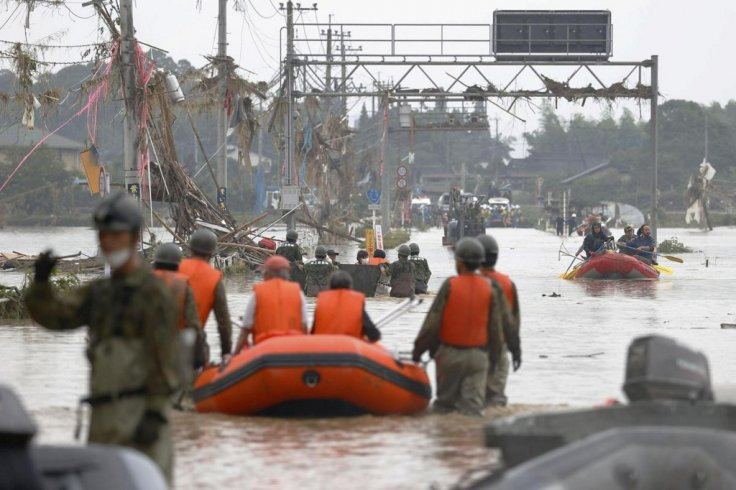Nearly 40 people are feared dead as torrential rains continued to hit Japan's southwestern island of Kyushu, with river banks at risk of bursting on Monday morning and new evacuation orders put in place.
Flooding and mudslides that began at the weekend have killed 21 people so far. A further 18 people were showing no vital signs and presumed dead pending official confirmation, and 13 people were missing, Chief Cabinet Secretary Yoshihide Suga said at a news conference.
"I offer my deepest condolences for those who have passed from the torrential rains," Suga said, adding that some 40,000 members of the Self-Defence Force were involved in rescue missions.

Flood Amid COVID-19
He added that evacuation centers were also working on preventing the spread of the novel coronavirus by distributing disinfectants and asking evacuees to maintain their distance from each other.
Rescue workers are helping through the wreckage of houses hit by floods and landslides. Reports have said over 50 people have died or are missing in the southern island of Kyushu.
Firefighters, Coast guards and members of the Self-Defence Forces are engaged in tens of thousands in rescue and recovery efforts. More personnel are on the way, according to reports.
Heavy Rains Forecast
More heavy rains are forecast to spread across the country until Tuesday, bringing 200 to 300mm of rainfall to the Kansai region around Osaka and the Kanto region around Tokyo.
As of Saturday, some 200,000 have been ordered to evacuate their homes, according to Kyodo news agency. The floods are Japan's worst natural disaster since Typhoon Hagibis in October last year that left about 90 people dead.
Ikuo Kabashima, the Governor of Kumamoto prefecture is under pressure for opposing a dam that would have helped in preventing floods. Being a Harvard-educated former university professor, he had promised that he would look for alternatives in flood-prevention schemes, all of them got rejected due to cost.
(With inputs from agencies)








